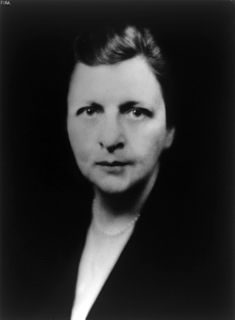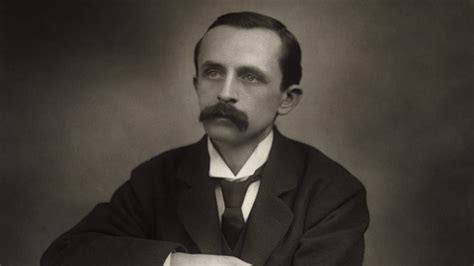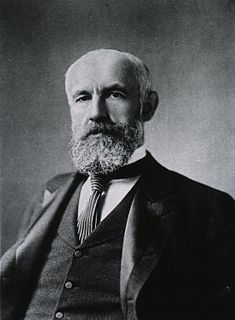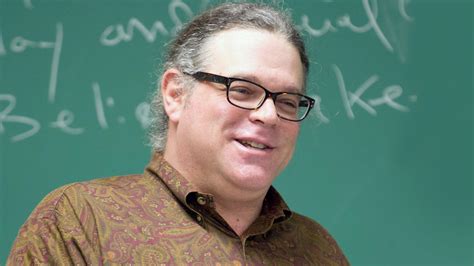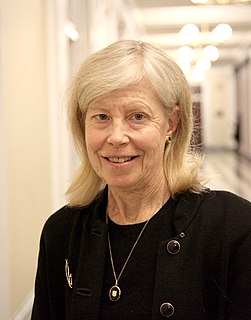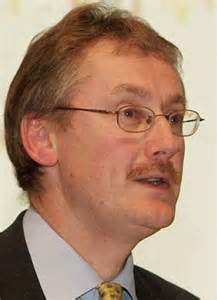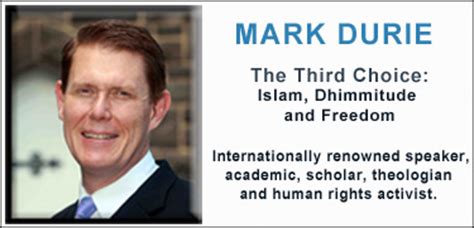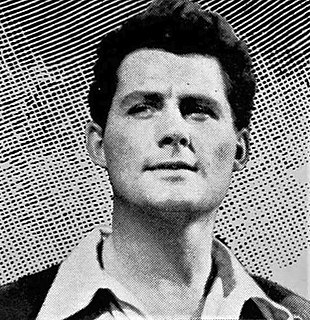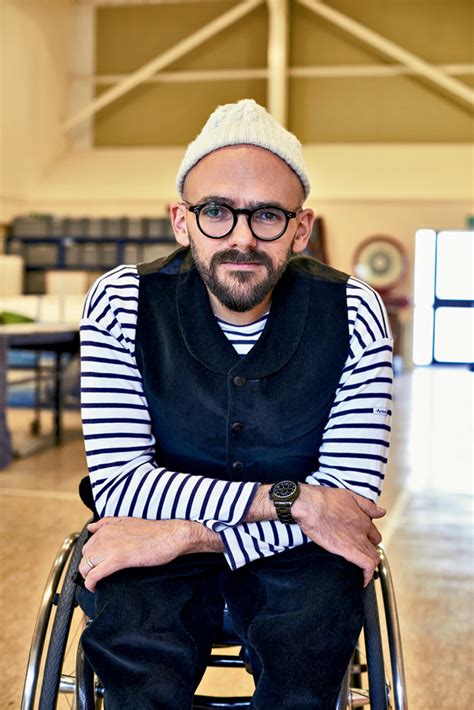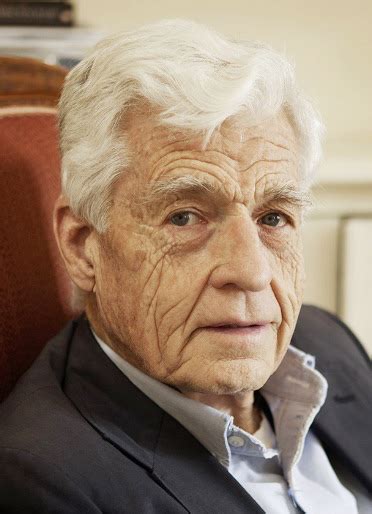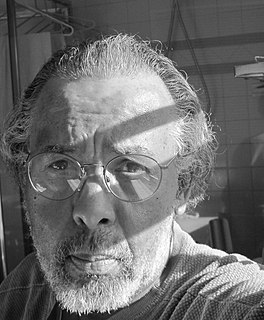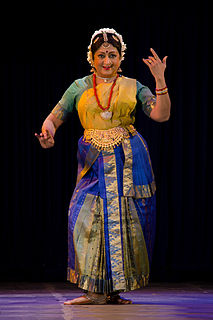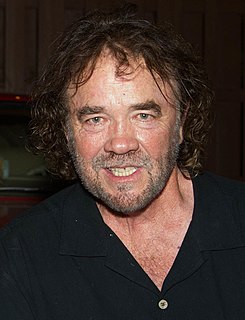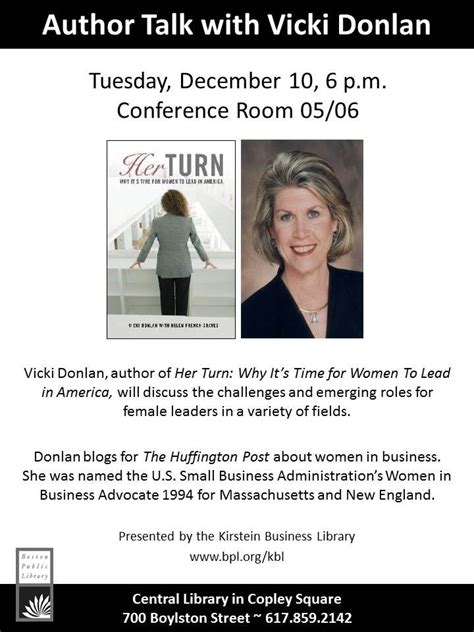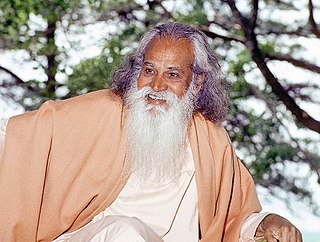Top 1161 Ethical Dilemmas Quotes & Sayings - Page 17
Explore popular Ethical Dilemmas quotes.
Last updated on December 19, 2024.
I regard monotheism as the greatest disaster ever to befall the human race. I see no good in Judaism, Christianity, or Islam - good people, yes, but any religion based on a single, well, frenzied and virulent god, is not as useful to the human race as, say, Confucianism, which is not a religion but an ethical and educational system.
As I understand it, Kantian constructivism is partly a position in normative ethics and partly a position in metaethics. In metaethics, it is the position that ethical claims have truth values, but their truth conditions consist not in a set of objective facts to which they correspond, but instead in the outcome of some procedure of deliberation resulting in decisions about what to do.
Out of our first century of national life we evolved the ethical principle that it was not right or just that an honest and industrious man should live and die in misery. He was entitled to some degree of sympathy and security. Our conscience declared against the honest workman's becoming a pauper, but our eyes told us that he very often did.
Do we, as humans, having an ability to reason and to communicate abstract ideas verbally and in writing, and to form ethical and moral judgments using the accumulated knowledge of the ages, have the right to take the lives of other sentient organisms, particularly when we are not forced to do so by hunger or dietary need, but rather do so for the somewhat frivolous reason that we like the taste of meat? In essence, should we know better?
Who are the governing bodies to say what is a good and a bad behaviour? I think that's unacceptable, even from an ethical point of view. I don't think anyone on this planet should be able to point at people and say this. For example, if it's not dangerous for other people, you should be allowed to break a racket. It's my racket, it's my problem.
Daily contact with some teachers is itself all-sided ethical education for the child without a spoken precept. Here, too, the real advantage of male over female teachers,especially for boys, is seen in their superior physical strength,which often, if highly estimated, gives real dignity and commands real respect, and especially in the unquestionably greater uniformity of their moods and their discipline.
Confucius was not so much a philsopher as a proto-ideologist: what interested him was not metaphysical Truths but rather a harmonious social order within which individuals could lead happy and ethical lives. He was the first to outline clearly what one is tempted to call the elementary scene of ideology, its zero-level, which consists in asserting the (nameless) authority of some substantial Tradition.
We need to remain alert to what happens to the body when it is mediatised. Too often, the mediatised body is an anaesthetised body. I would be the last person to argue that the body signifies at some basic level that precedes or transcends its cultural inscriptions. Nevertheless, there is an ethical imperative not to conflate the body with its representations and mediations, but to remember that there is an actual body there somewhere, experiencing the consequences of what is being done to it.
If we empower ourselves with responsibility over our actions, responsibility over our destinies and responsibility for directing and maintaining and creating our own ethical and moral frameworks, which is the most important thing really isn’t it because perhaps the greatest insult to humanism is this idea that mankind needs a god in order to have a moral framework.
Ironically enough, if the case involves race, and one claims that race is a disqualifying factor, nobody could hear the case. Everybody comes to these cases with some preconceptions, and the premise of our judicial system is that judges by training and by ethical codes are obligated to set those prejudices aside and to decide on the facts and the law. And to claim that somebody can't simply because of their racial identity is deeply offensive.
Many more people are poor and sick because of the life of MT: Even more will be poor and sick if her example is followed. She was a fanatic, a fundamentalist, and a fraud, and a church that officially protects those who violate the innocent has given us another clear sign of where it truly stands on moral and ethical questions.
Reality is much more complex than any judgment of right and wrong encourages you to believe. When you really understand the ethical, spiritual, social, economic, and psychological forces that shape individuals, you will see that people's choices are not based on a desire to hurt. Instead, they are in accord with what they know and what world views are available to them. Most are doing the best they can, given what information they've received and what problems they are facing.
Virtue is as little to be acquired by learning as genius; nay, the idea is barren, and is only to be employed as an instrument, in the same way as genius in respect to art. It would be as foolish to expect that our moral and ethical systems would turn out virtuous, noble, and holy beings, as that our aesthetic systems would produce poets, painters, and musicians.
Kant's description of most ethical duties reads more like a description of moral virtues and vices. Once we see this, we see that Kantian ethics is indeed a kind of virtue ethics, and that it does not "divide the heart from the head" (to anticipate one of your later questions) but instead recognizes the deep truth that reason and emotion are not opposites.
Belief in one god, praying, charity, the five pillars, ethical moral objectives and messages in the Koran, the history of Islam. There are basic tenants in Islam that we universally believe in but I think it's very naive to think that Sharia, that legal rulings are derived in a vacuum, that people do not bring their own histories and politics and social pledges to bear when they interpret the Koran.
The arts are not simply skills: their concern is the intellectual, ethical, and spiritual maturity of human life. And in a time when religious and political institutions are so busy engraving images of marketable gods and candidates that they lose their vision of human dignity, the arts have become the custodians of those values which most worthily difine humanity, which most sensitively define Divinity.
No science of any kind can be divorced from ethical considerations... Science is a human learning process which arises in certain subcultures in human society and not in others, and a subculture as we seen is a group of people defined by acceptance of certain common values, that is, an ethic which permits extensive communication between them.
Government by the people for the people becomes meaningless unless it includes major economic decision-making by the people for the people. This is not simply an economic matter. In essence it is an ethical and moral question, for whoever takes the important economic decisions in society ipso facto determines the social priorities of that society.
But if we believe what we profess concerning the worth of the individual, then the idea of individual development within a framework of ethical purpose must become our deepest concern, our national preoccupation, our passion, our obsession. We must think of education as relevant for everyone everywhere - at all ages and in all conditions of life.
From the ethical point of view, no one can escape responsibility with the excuse that he is only an individual, on whom the fate of the world does not depend. Not only can this not be known objectively for certain, because it is always possible that it will depend precisely on the individual, but this kind of thinking is also made impossible by the very essence of ethics, by conscience and the sense of responsibility.
I bargain-shop all the time, but then I started learning about how those products are made and about how if you spend a little bit more money on ethical clothing that are using recycled materials - like, my favorite dresses are by Christy Dawn... the carbon footprint that they're leaving is so minimal, and it's really worth the extra money.
A kernel of truth lurks at the heart of religion, because spiritual experience, ethical behavior, and strong communities are essential for human happiness. And yet our religious traditions are intellectually defunct and politically ruinous. While spiritual experience is clearly a natural propensity of the human mind, we need not believe anything on insufficient evidence to actualize it.
"You, who are on the road, must have a code that you can live by-"* You'll find universal agreement on the value of a behavior code, on the need for some sort of ethical system. Even the crooks count on "honor among thieves," and countries actually wage war according to certain rules. On the job and in the rest of our day-to-day living, we each need a "code for the road."
I've got some incredible fans actually - so loyal and they make me birthday cards and Christmas cards. I got this package of poems and artwork based around Jennifer Bofinger, media spokeswoman for the animal rights group People for the Ethical Treatment of Animals, said despite the shabby treatment of deer just loves it!
A form of political behavior marked by obsessive preoccupation with community decline, humiliation or victimhood and by compensatory cults of unity, energy and purity, in which a mass-based party of committed nationalist militants, working in uneasy but effective collaboration with traditional elites, abandons democratic liberties and pursues with redemptive violence and without ethical or legal restraints goals of internal cleansing and external expansion.
The very essence of political philosophy is the carving out of an ethical system - strictly, a subset of ethics dealing with political ethics. Ethics is the one rational discipline that demands the establishment of a rational set of value judgments; political ethics is that subset applying to matters of State.
Western liberal humanism is not something that comes naturally to us: like an appreciation of art or poetry, it has to be cultivated. Humanism is itself a religion without God-not all religions, of course, are theistic. Our ethical secular ideal has it's own disciplines of mind and heart and gives people the means of finding faith in the ultimate meaning of human life that were once provided by the more conventional religions.
In the interest of the ethical and moral health of the country, the writer, the poet, the artist, the thinker, must hold a mirror up his or her country and say, look, this is who we are, this is how we live, this is our past, we must own it, forgive ourselves, transcend our transgressions, and become better people. Turning the tide must be a continuous effort.
When, in any ethical department, unity is attained between outer demands and inner desires, between nature and conscience, between the needs of society and the individual, the moral formula is void because inner necessity then makes it psychically and physically impossible to break the outer law. Thus, true morality is attained.
There is no such thing as not worshipping. Everybody worships. The only choice we get is what to worship. And an outstanding reason for choosing some sort of God or spiritual-type thing to worship - be it J.C. or Allah, be it Yahweh or the Wiccan mother-goddess or the Four Noble Truths or some infrangible set of ethical principles - is that pretty much anything else you worship will eat you alive.
My aim is to communicate with the last man in the audience. Art minus communication is meaningless. The term 'abhinaya' is not just facial expressions. It means drawing the spectator to an idea. Look at the modern advertisements. It's contemporary abhinaya. But one who creates should know what has to be completely and what has to be suggestively portrayed. That is ethical aesthetics. The Natyasastra says a production must be such that a family should be able to watch it together.
We have all been brought up with an ethical system of 2,000 years ago, an industrial-managerial system of 200-300 years ago, a statecraft system of 200 years ago, and so on. None of this is working very well for the requirements of a time as complex and variegated as our own. So we stand shuttering at the threshold, with no clear map.
The doctrine of foods is of great ethical and political significance. Food becomes blood, blood becomes heart and brain, thoughts and mind stuff. Human fare is the foundation of human culture and thought. Would you improve a nation? Give it, instead of declamations against sin, better food. Man is what he eats [Der Mensch ist, was er isst].
Rather take that moral sense and apply it to the particulars of a job that is going to test those ethical and moral precepts differently than if you're a professor, or a business person, or a dad. And if I were not comfortable with the judicious use of our military to protect the American people, than I shouldn't have run for president. And having said that, I do think that the wisdom of a [Martin Luther] King or a [Mahatma] Gandhi can inform my decisions.
Perhaps we should worry less about judging people for being Mormon or Baptist or Muslim or gay or straight or black or white or Latino or by their religious or political brands and worry more about electing thoughtful, serious and ethical politicians on both sides of the political isle who are willing to work together for progress.
The Conservation Buck Challenge was designed to engage and mobilize the hunting community to preserve the outdoor experience for future generations. Our members will be ambassadors for ethical hunting, respect for private property rights, support for conservation funding and programs that give our children the chance to learn the valuable lessons of nature.
Are there experts, ethical experts, that's very offensive to all of us? Because it's part of our humanity to have a stake in these questions to feel that we ourselves know the difference between right and wrong. And then along come these experts, philosophers, claiming, you know, an expertise, a special training, a special skill, a special talent.
The fact that no limits exist to the destructiveness of this weapon [the 'Super', i.e. the hydrogen bomb] makes its very existence and the knowledge of its construction a danger to humanity as a whole. It is necessarily an evil thing considered in any light. For these reasons, we believe it important for the President of the United States to tell the American public and the world what we think is wrong on fundamental ethical principles to initiate the development of such a weapon.
Perhaps, indeed, there are no truly universal ethics: or to put it more precisely, the ways in which ethical principles are interpreted will inevitably differ across cultures and eras. Yet, these differences arise chiefly at the margins. All known societies embrace the virtues of truthfulness, integrity, loyalty, fairness; none explicitly endorse falsehood, dishonesty, disloyalty, gross inequity. (Five Minds for the Future, p136)
It's not that I believe women are more ethical. I will say that one of women's greatest weaknesses is probably our greatest strength. We are incredibly hard on each other. We ask all the questions. Men are more easygoing. If you've ever been in a group of women, you'll recognize this: Nobody gives one woman the opportunity to lead the way without asking a whole lot of questions.
[T]he visibility of styles is itself a product of historical consciousness. ... The very notion of "style" needs to be approached historically. Awareness of style as a problematic and isolable element in a work of art has emerged in the audience for art only at certain historical moments - as a front behind which other issues, ultimately ethical and political, are being debated.
The five points of yama, together with the five points of niyama, remind us of the Ten Commandments of the Christtian and Jewish faiths, as well as of the ten virtues of Buddhism. In fact, there is no religion without these moral or ethical codes. All spiritual life should be based on these things. They are the foundation stones without which we can never build anything lasting. (127)
It is my fundamental conviction that compassion - the natural capacity of the human heart to feel concern for and connection with another human being - constitutes a basic aspect of our nature shared by all human beings, as well as being the foundation of our happiness. All ethical teachings, whether religious or nonreligious, aim to nurture this innate and precious quality, to develop it and to perfect it.
The religious urge in man is not a mere passing phase in the history of his spiritual development, but the ultimate source of all his ethical thought and all his concepts of morality; not the outcome of primitive credulity which a more "enlightened" age could outgrow, but the only answer to a real, basic need of man at all times and in all environments. In another word, it is an instinct.
It's an ethical pact I've made with myself and with the reader - not to invent. And when I can't remember, I say I can't remember. I'm just appalled by the memoirs published by people who regurgitate dialogue, conversations from when they were small children, and they go on for three or four pages. I can't even remember what we said to each other ten minutes ago! How can I remember what was said sixty years ago? It's not possible.
What is proposed herein is that we have no right, nor any ethical justification, for clearing land or using wilderness while we tread over lawns, create erosion, and use land inefficiently. Our responsibility is to put our house in order. Should we do so, there will never be any need to destroy wilderness.
Although humans inherit a biological bias that permits them to feel anger, jealousy, selfishness and envy, and to be rude, aggressive or violent, they inherit an even stronger biological bias for kindness, compassion, cooperation, love and nurture - especially toward those in need. This inbuilt ethical sense is a biological feature of our species.
So when I say that I think we would have a different ethical level, particularly in corporate America, if there were more women involved, I mean that what women are best at is asking questions. Women ask questions over and over again. It drives men nuts. Women tend to ask the detailed questions; they want to know the answers.
Preservation of the environment, promotion of sustainable development and particular attention to climate change are matters of grave concern for the entire human family. No nation or business sector can ignore the ethical implications present in all economic and social development. With increasing clarity scientific research demonstrates that the impact of human actions in any one place or region can have worldwide effects.
In any case, his religious teaching consisted mostly in more or less vague ethical remarks, an obscure mixture of ideals of English gentlemanliness and his favorite notions of personal hygiene. Everybody knew that his class was liable to degenerate into a demonstration of some practical points about rowing, with Buggy sitting on the table and showing us how to pull an oar.



